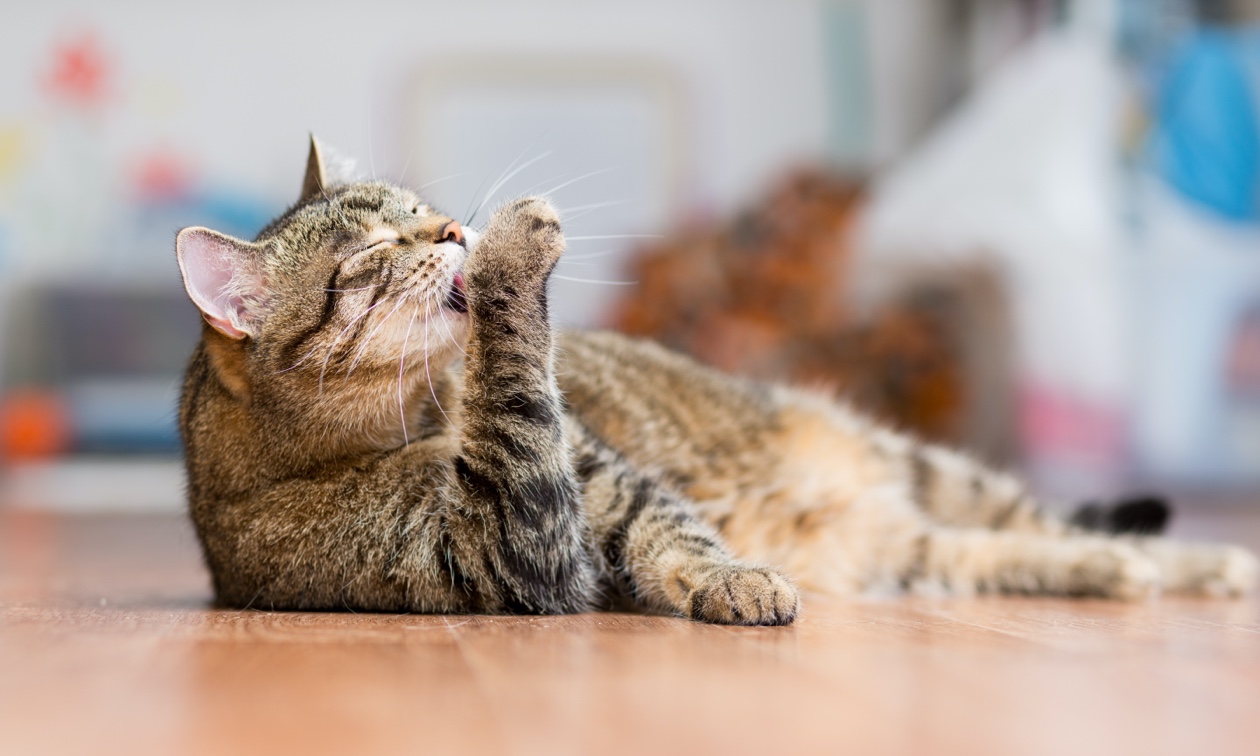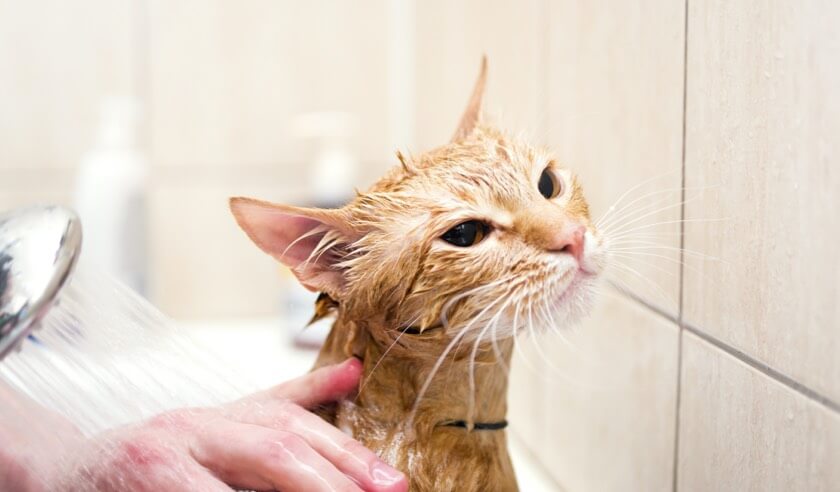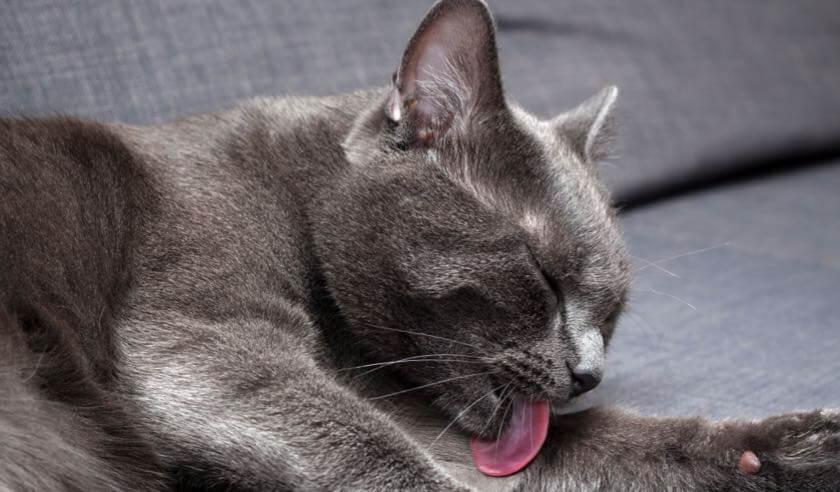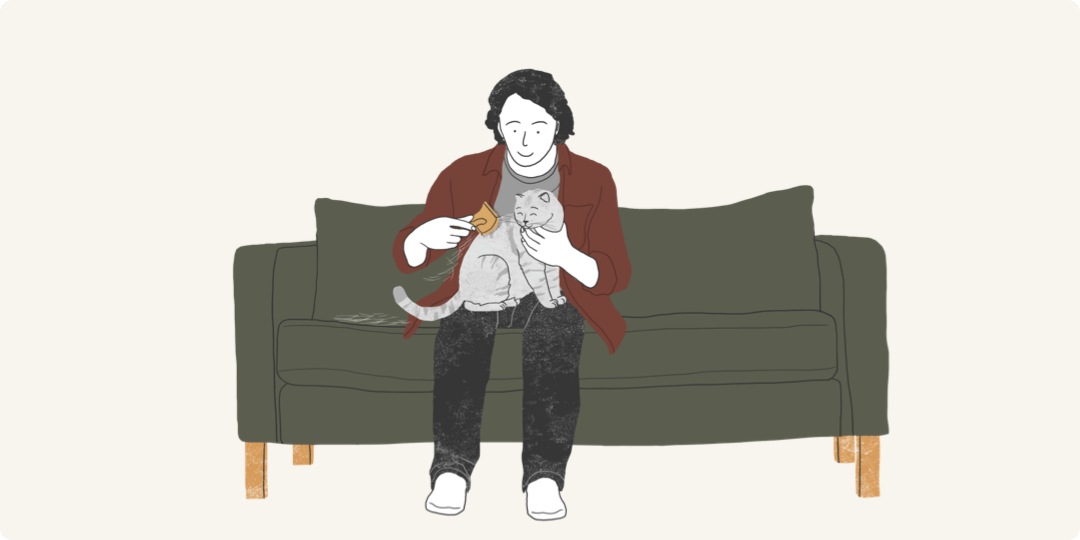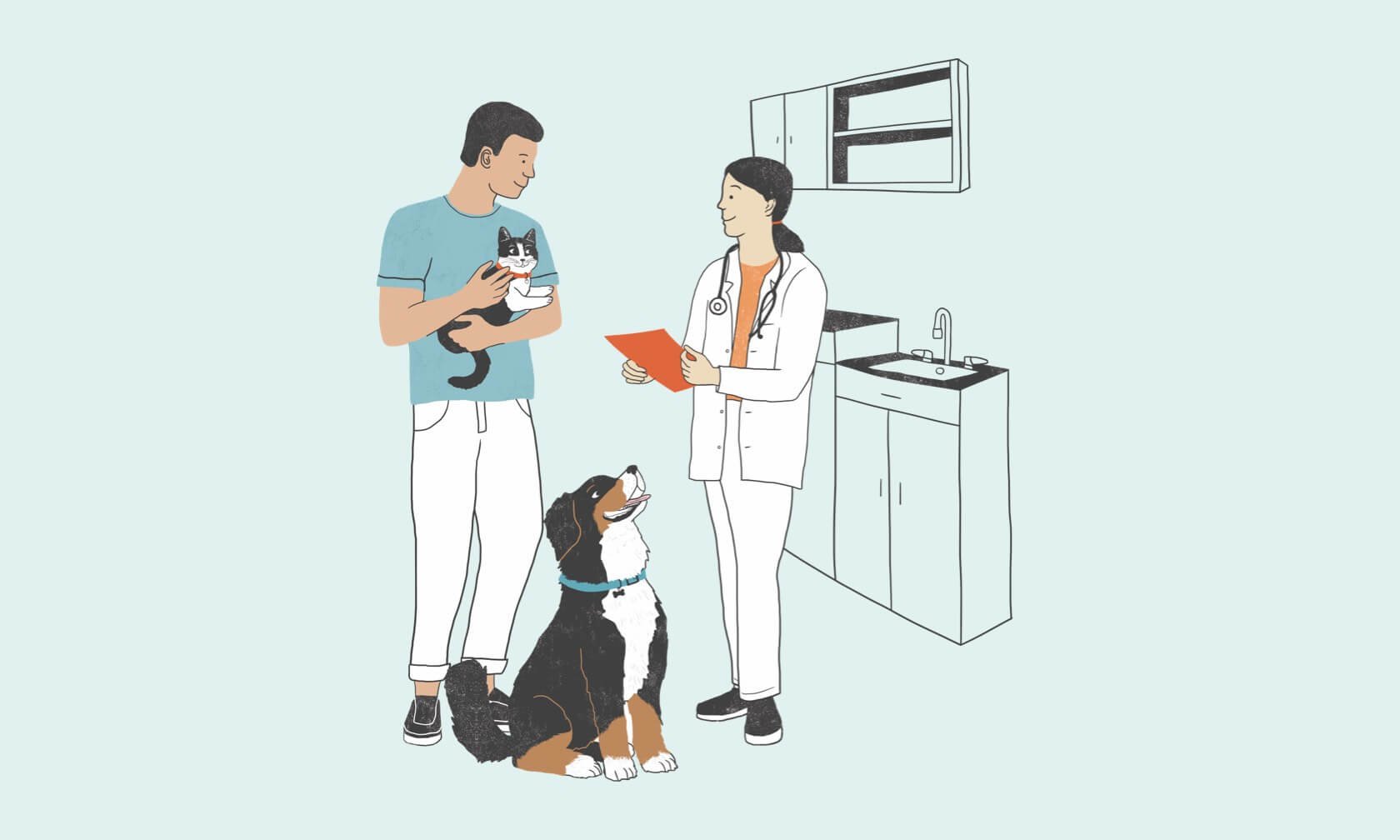If you have a cat, chances are your cat has hacked up a hairball or two (ok, probably many more than two). But, what exactly are these gross clumps of hair, and why do cats get them?
What Are Hairballs and Why Does My Cat Get Them?
Hairballs (or trichobezoars as they’re scientifically known) are a mixture of hair, saliva, and digestive juices. Your cat’s sandpaper-like tongue traps dirt and hair as they groom, and that dirt and hair is often then swallowed. This dirt and hair is not just from grooming themselves — but also comes from other cats or dogs in your home, people, and even the carpets. Once your cat swallows this hair, it typically passes through their stomach and intestines to be pooped out in their litter box.
Hairballs form when there’s too much hair or if there’s a problem moving the hair through their gut (from motility or other issues). Hairballs act like a clog in a pipe, which can cause big problems if not dislodged. This is why your cat throws them up.
Are Hairballs Normal?
In short, yes — cats groom themselves and will ingest hair in the process. But there are some things to watch out for, like how often your cat is bringing up hairballs. If they’re producing more hairballs than usual, contact your veterinarian. While it may just be a matter of brushing your cat more or feeding them a diet that encourages more hair to be more easily moved along, hairballs can be a sign of more serious issues like inflammatory bowel disease. Your vet can determine the cause (there could be underlying allergies — either to something in their environment and/or their food) and help reduce the number of hairballs your cat hacks up.
How to Prevent Hairballs in Cats
While you likely won’t be able to stop hairballs from happening completely, there are some steps you can take to lessen the number of them.
- Brush your cat regularly, preferably daily, with a de-shedding tool or comb to keep loose hairs in their coat at a minimum. This will also reduce the amount of cat hair you spot on your clothes, furniture, and floors.
- Try to stop your cats from grooming other pets in the home or licking carpets.
- There are foods and supplements specially formulated to help your cat move hair through their system better. Your veterinarian may recommend this if they have confirmed your cat is producing more hairballs than normal.
Hairballs are a fact of cat life, but with proper management your cat should be hacking up far fewer of them.
ZPC-00236R2
